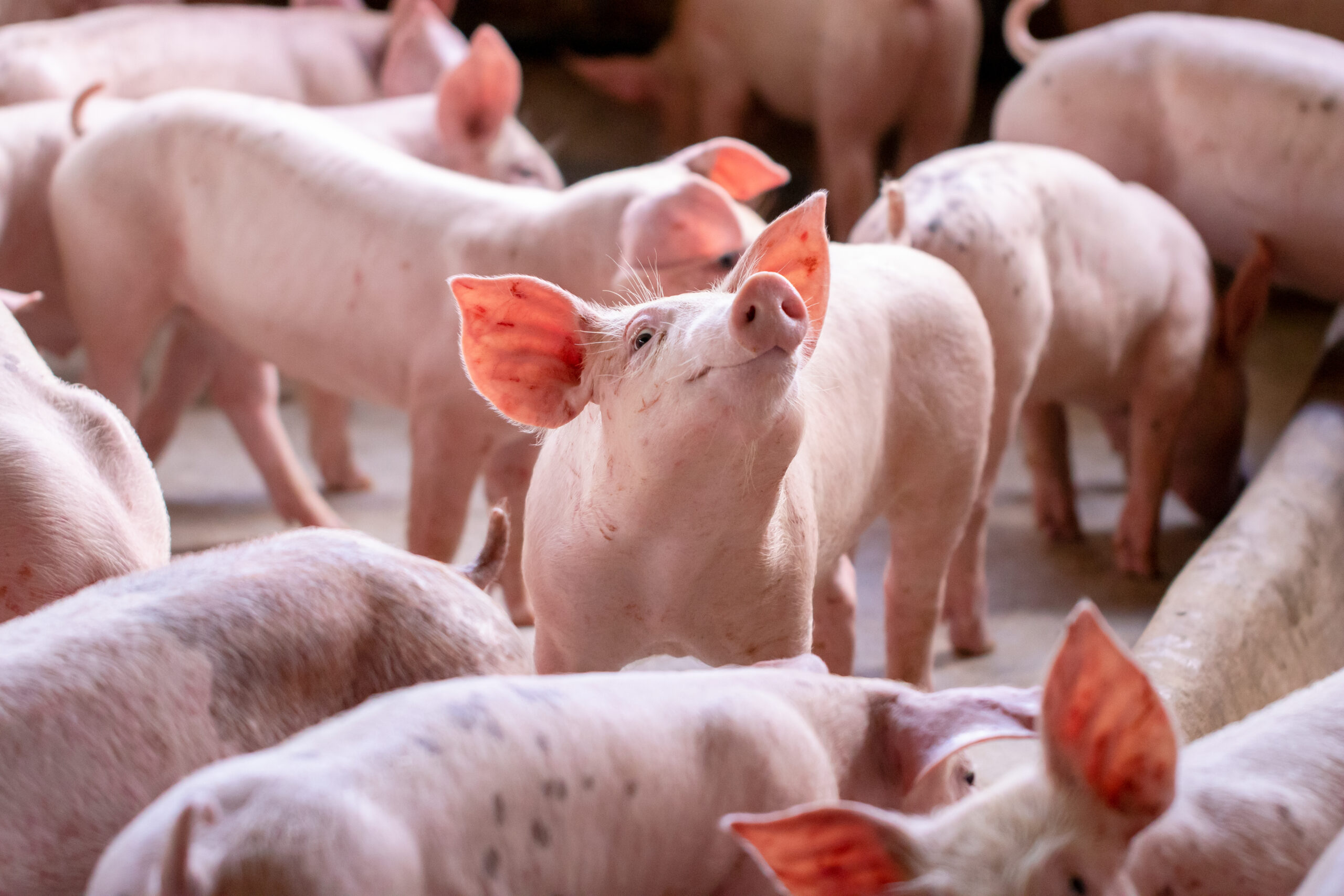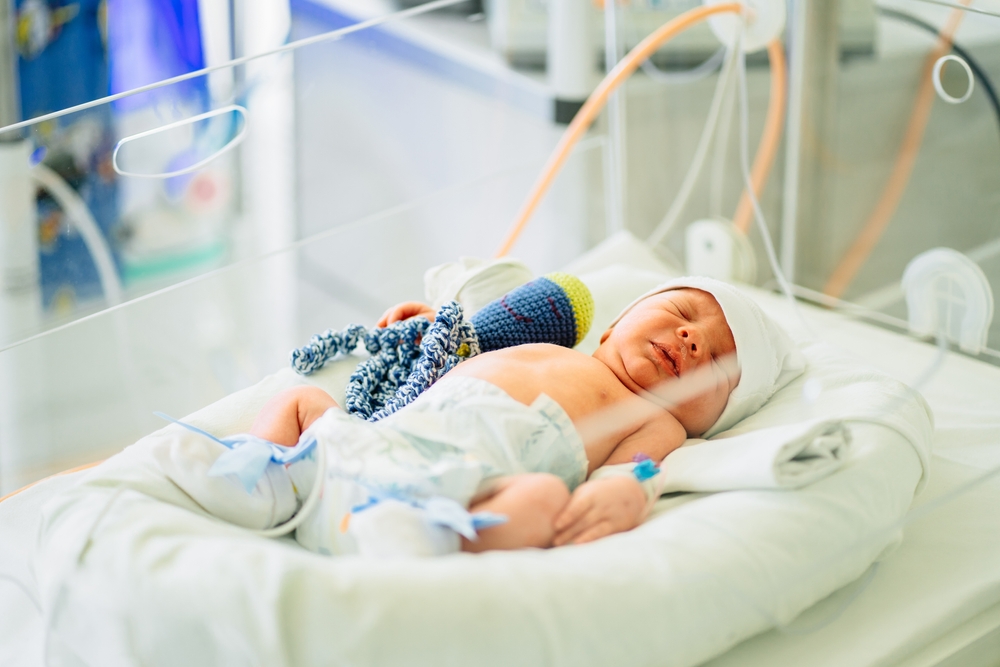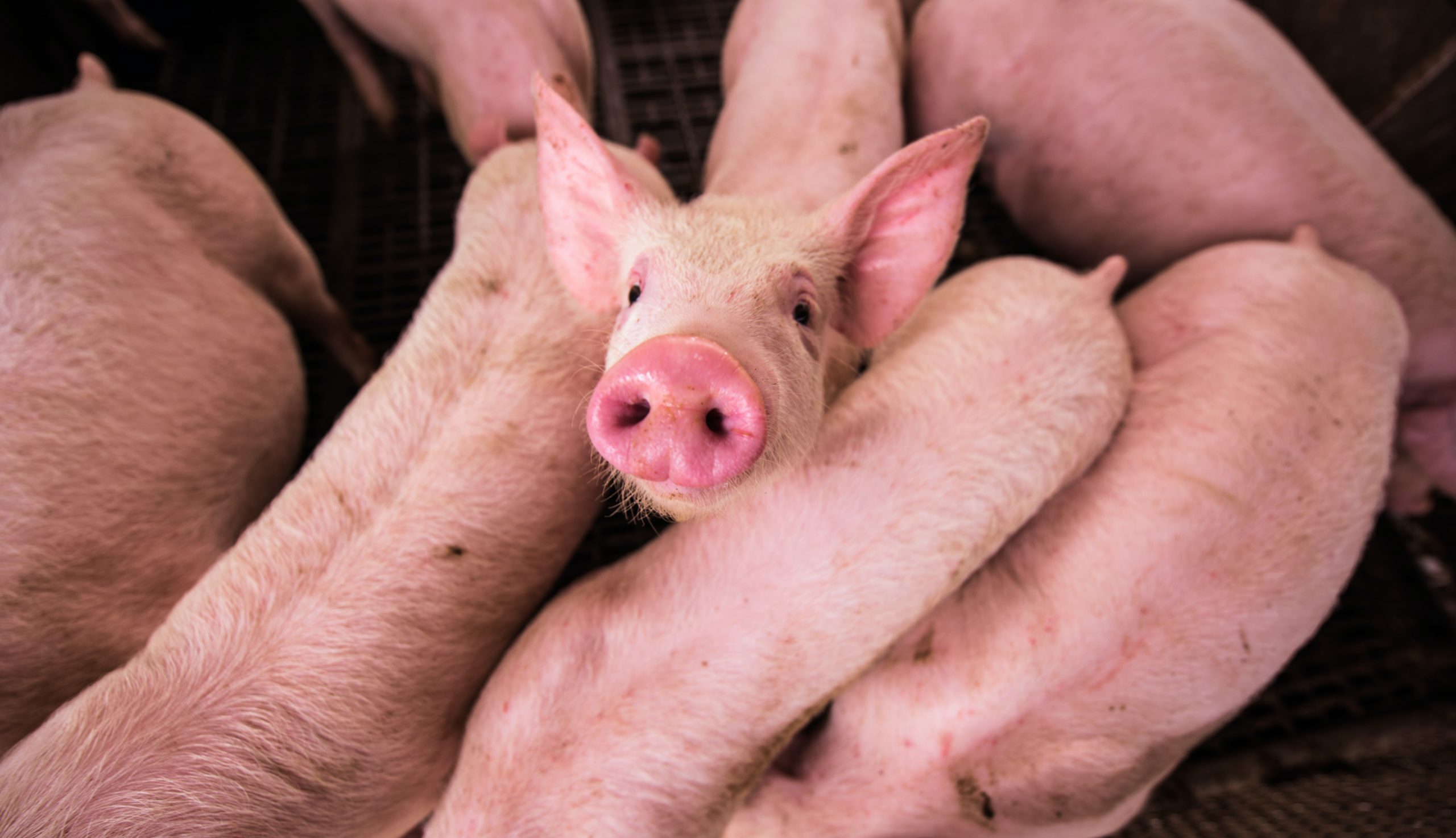Probiotics are a promising supplement for pigs but often have a limited effect on weaned piglets. In her PhD research, Mirelle Geervliet discovered that administering probiotics in the early stages of life may have beneficial effects.
Since the ban on preventive antibiotics, pig farmers have searched for alternatives to enable the rapid and healthy development of piglets, for example, by administering probiotics, bacteria that have a beneficial effect on health. Probiotics have a limited effect on weaned piglets because their intestinal flora has already fully developed. Mirelle Geervliet (Cell biology and Immunology) discovered that administering probiotics while the piglets are still suckling works better. She obtained her PhD on this research in December.
Beneficial bacterium
Piglets are weaned at around four weeks. They are then given a different diet and moved to a separate sty. These changes have a significant impact on the animals. The stress they experience may result in infections and diarrhoea. Probiotics can help prevent these adverse effects.
Geervliet administered the probiotic bacteria Escherichia coli Nissle 1917 to piglets from the second day after their birth. The assumption is that, since the intestinal ecosystem is still in development, the probiotics will find a vacant spot to establish. ‘It is a window of opportunity’, says Geervliet. She studied the piglets’ immune system as well as their intestinal microbiome with Hugo de Vries (Microbiology).
Momentary effects
Geervliet has found signs that the probiotic helps the piglets develop a better immunity during their first four weeks compared to piglets that did not receive the probiotic. The pigs had an increased immune cell count in their bloodstream and the lymph nodes near the intestinal membrane produced more anti-inflammatory substances.
Moreover, the E. coli Nissle1917 caused a lower Proteobacteria diversity and fewer Treponema-bacteria, two groups of bacteria with possible pathogens. These effects disappeared after weaning. Geervliet: ‘The drastic changes the pigs experience from weaning probably eclipse the subtle benefits of the probiotic.’
Boosts health, not growth
Since its discovery in 1917 by Alfred Nissle, the bacterium has been used in humans. ‘That is why there is a lot of information available on it’, Geervliet explains. ‘But it has never been commercially administered to pigs.’ She expects that obtaining a permit to do so will be challenging, and whether the benefits outweigh the costs for the farmer remains to be seen. ‘If the farmer must administer it to one hundred piglets, this is a labour-intensive job. In that case he wants to be sure that the benefits are profitable.’
Before the ban that was introduced in 2006, farmers could use preventive antibiotics in the feed to enhance growth. Geervliet’s study shows that E. coli Nissle 1917 boosts health, but not growth. This was unexpected, but Geervliet emphasizes that health is more important than growth. ‘If an animal grows too fast, this may affect its resilience. A healthy animal grows well, without being overexerted.’

 Doctoral candidate Mirelle Geervliet has found evidence that piglets that receive the probiotic during their first four weeks develop a better immune system than those without.
Photo Shutterstock
Doctoral candidate Mirelle Geervliet has found evidence that piglets that receive the probiotic during their first four weeks develop a better immune system than those without.
Photo Shutterstock


